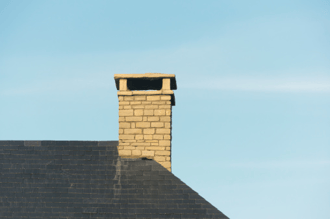 There is nothing as serene as a warm, crackling fire on a cold, winter night. There is also nothing more dangerous if your chimney is damaged. When is the last time that you have checked on your chimney safety in the homeowners association?
There is nothing as serene as a warm, crackling fire on a cold, winter night. There is also nothing more dangerous if your chimney is damaged. When is the last time that you have checked on your chimney safety in the homeowners association?
Broken or cracked chimneys can let heat, smoke, or toxic gasses, such as carbon monoxide, into your home. Your home could even catch fire. Chimney damage is often obvious, but sometimes it can be hidden. Use the following checklist, provided by Ready Virginia! to help ensure that your Association members enjoy their fireplace and avoid problems—or even a disaster.
Chimney Safety Checklist
-
Check to see if bricks have fallen or the chimney is leaning.
-
Look for shiny areas on your exterior metal chimney pipe. This could mean the chimney has shifted.
-
Look for cracks at joints where the chimney connects to the firebox, at the roof-line, and in the attic.
-
Check for debris that may have fallen into the fireplace.
-
Check for any animals that may have gotten stuck in the chimney.
-
Use a screwdriver to check the mortar between the bricks or stones. If it crumbles when you pick at it, the chimney may be a hazard and probably needs work.
-
When in doubt, consult a licensed engineer or contractor. For the name of an inspector, call your insurance or mortgage company.
HOA Board Members - please remember that disasters can happen even in the best of homes. That's why every home should be equipped with carbon monoxide and smoke detectors.
Carbon Monoxide and Smoke Detector Tips
-
Install carbon monoxide and smoke detectors in sleeping areas, on every level of your home, and away from air vents. Interconnected smoke alarms are best, because if one sounds, they all sound.
-
Test smoke alarms monthly, and change alkaline batteries at least twice a year. Use a familiar date to remind you to check, such as your birthday or Daylight Savings.
-
Prepare and practice a fire escape route with everyone in your home, including children.
Even if a homeowners association is not responsible for the maintenance of chimneys, smoke alarms, and carbon monoxide detectors inside the home, it's important information to pass along to the membership. Remember, one can never be too prepared for disaster and this includes chimney safety!
Topics: Living in an HOA, HOA Maintenance, Safety





